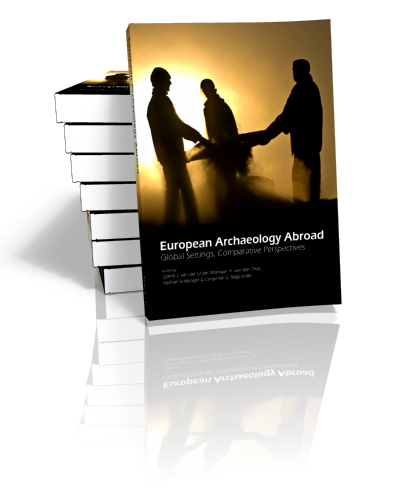What are European archaeologists doing abroad? What have they been doing there for the past three to four centuries? Are they doing things differently nowadays? To address these questions, this book explores the scope, impact and ethics of European archaeological policies and practices in the Mediterranean area, the Near East, sub-Saharan Africa, Asia and Latin America.
Acknowledging that international and transcultural projects have a range of different stakeholders, the first part of this book aims to identify some of the values and motivations behind different European archaeologies abroad. This is done by providing thorough historical overviews on a range of European countries, including France, Spain, Germany, Belgium, the Netherlands and Poland.
But how are these values translated, through socio-political, theoretical and administrative frameworks, unto local circumstances in host countries? And how are these archaeological activities received locally? The second part of this book attempts to answer these questions through a range of historical and contemporary case studies, in Africa, in Asia, in South America, in the Near East and in Europe.
The third part of the book offers several critical reflections on European values, motivations and collaboration projects, as perceived by archaeological heritage professionals based in, and/or working in Senegal, Sudan, Somaliland, Colombia, and the Near East.
This collection of historical overviews, contemporary case studies and critical reflections focuses on the challenging relationships between archaeological practices and policies, including the requirements and wishes of archaeologists, of local communities and of other stakeholders in Europe and in the host countries. In addition to researchers and students, this book should be of interest to practicing archaeologists, heritage professionals and policy makers the world over, as they seek to reach better informed decisions regarding archaeological projects and international collaboration.
This publication was produced in the framework of the ACE project – “Archaeology in Contemporary Europe. Professional Practices and Public Outreach”, with the support of the Culture 2007-2013 programme of the European Commission.







